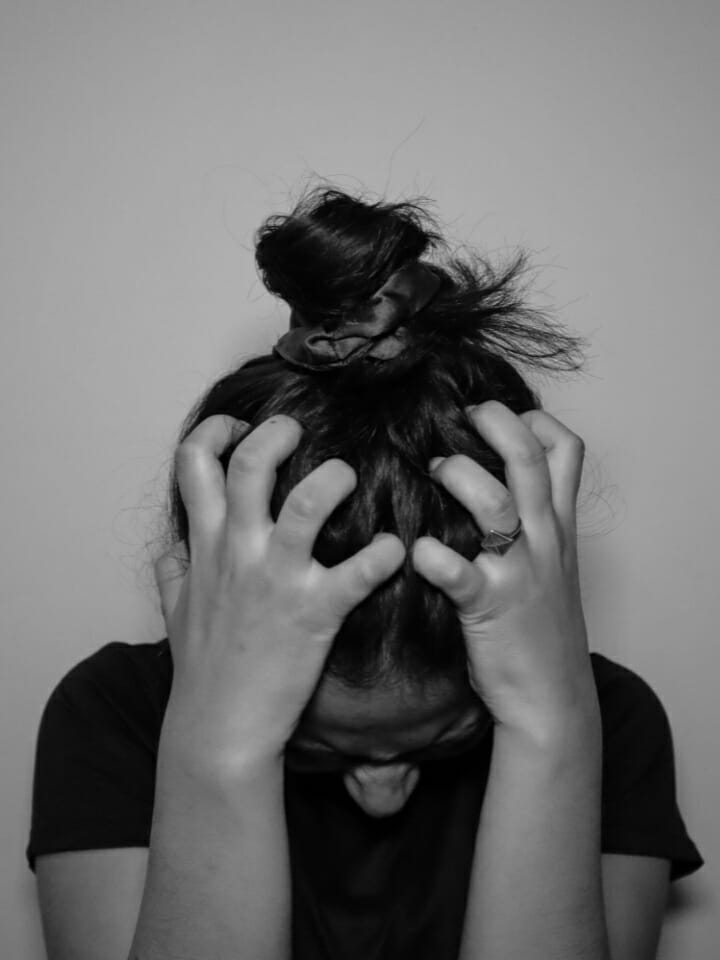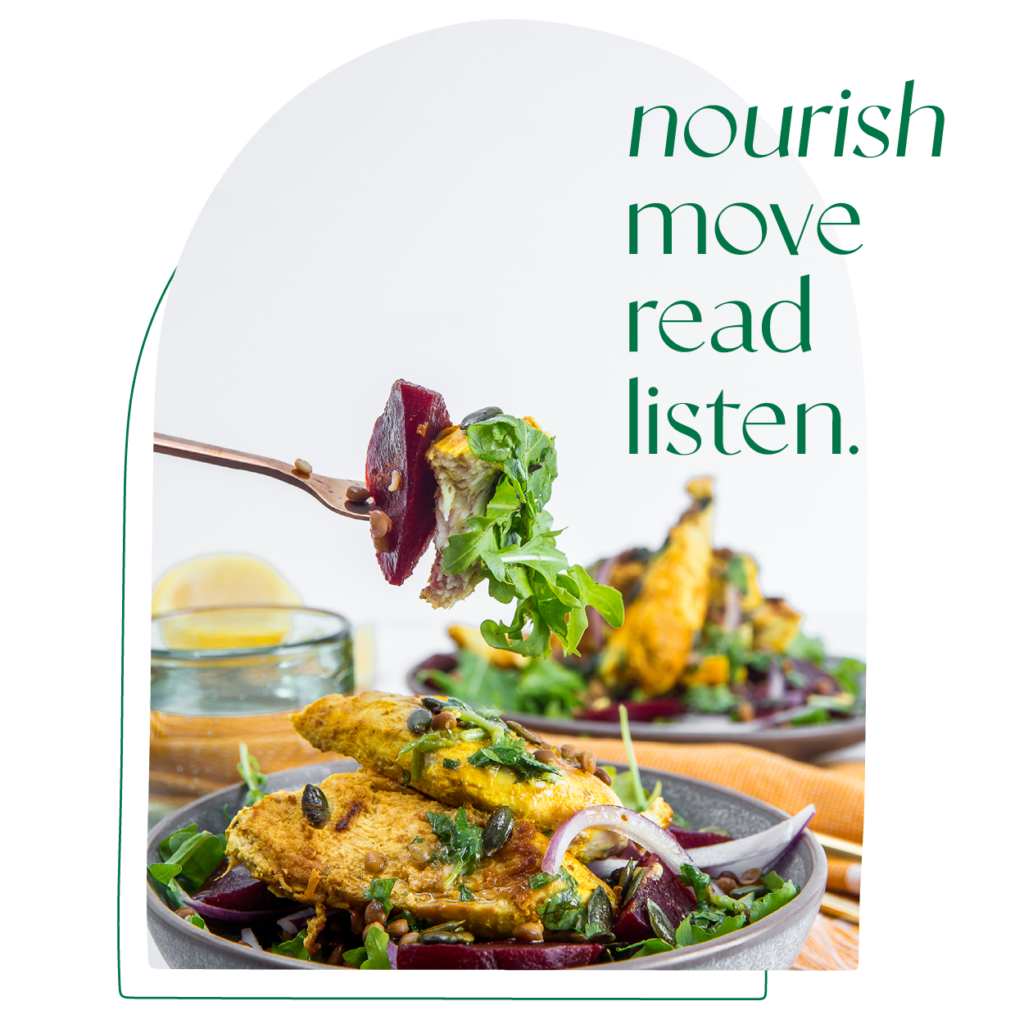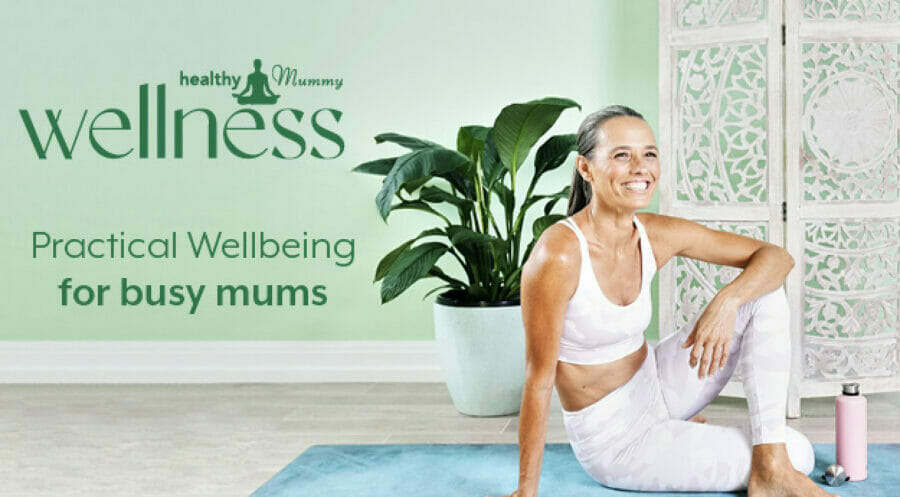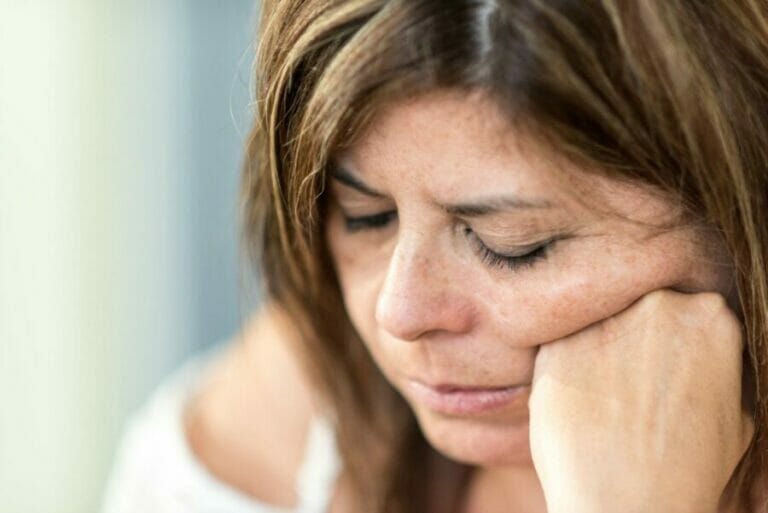![]()
Why do I suffer from PMS and what can I do about it?

Premenstrual syndrome (PMS) can begin at any point in your cycle. However, it tends to appear in the lead up to your period, roughly 7-10 days before you start to bleed.
Some of the most common symptoms include mood swings, emotional outbursts, irritability, tender breasts, food cravings and fatigue. Women often remark they ‘feel crazy’ and that PMS can lead them to feeling hysterical or dramatic, but Naturopath Sarah McLauchlan says we need to change the narrative around PMS.
“It’s really important, from a feminist perspective, that we don’t trivialise PMS. Not just us, but our families, friends, and partners as well. We aren’t just ‘being crazy’. There are legitimate reasons as to why we feel this way,” she stresses.
“It’s actually down to the fluctuations in our hormones during our cycle. These hormonal changes impact how we feel physically, emotionally, and mentally.”
PMS is physical as well as physiological

PMS isn’t purely physiological, there are also physical changes such as finding it harder to get to sleep, stay asleep, experiencing bloating, fluid retention as well as food and drink cravings, headaches, migraines, changes in your breasts, breast pain, skin changes, acne, brain fog, joint pain and also heart palpitations.
“At the time, you may feel like you are the only one, so it’s important to give your body what it needs at that time,” says Sarah.
“Think of your period cycle in different phases or seasons. You will have different energy levels as your hormones rise and fall. In fact, our bodies were not designed to be on the go, all of the time.
“We feel differently at different points of the month, and when we experience PMS, it may be because we need to take our foot off the break, as our stress resilience is at its lowest.”

PMS is linked to oestrogen
Our mood, motivation, confidence and even our socialisation can be affected as oestrogen levels peak then drop ahead of ovulation.
“When you are constantly on the go, therefore not resting, you’re not giving your body a chance to build back up progesterone (feel-good hormone) levels to counterbalance the spike then drop in oestrogen levels. Progesterone is like the body’s Valium, it helps keep you calm if you are feeling stressed,” says Sarah.
“But if you don’t give yourself chance to rest and digest, then cortisol – the stress hormone – will take over. When you feel premenstrual, rest, regroup, sleep and nourish yourself.
“During this period, also try avoiding alcohol and to see if it makes a difference. You can cut it out completely for four weeks, then slowly introduce it sporadically to see how your body responds to it.”
How to reduce the symptoms of PMS

Your liver helps your body metabolise your hormones, but it also is the organ that detoxifies your body when you are drinking alcohol, so there could be a direct link between PMS symptoms and binge drinking.
Another thing to do to help regulate your hormones, is to make sure you are emptying your bowels every day. It’s a great marker of your body’s overall health. If you are struggling with this, you can try flaxseed oil by adding it to your salad or in your smoothie. Flaxseed contains its own type of oestrogen, which can help balance out your own oestrogen levels.
A final tip Sarah has to reign-in PMS symptoms, is to consume anti-inflammatory foods, such as rice, quinoa, fatty fish like salmon, as well as ginger tea, turmeric, ginger and liquorice – as these all help your body build stress resilience.

You can find lots of nourishing recipes in the Wellness App
While experiencing the symptoms of PMS is normal for many women, if you suffer from intense or severe symptoms, it’s advised you consult a doctor, as it might be something else.
Here’s a quick recap of how to help improve your PMS symptoms:
Slow down, add fibre, have a poo, lay off alcohol and be kind to liver, as well as eat lots of anti-inflammatory foods.
Get Access to Hormone Balancing Recipes and Gentle Yoga workouts in the Healthy Mummy Wellness App

The Healthy Mummy Wellness app is built to support mums’ mental, physical and social wellbeing. We have expert advice to help mums makeover their minds, transform their mood, manage their hormones, sleep better and engage with their family. You can listen to podcasts, read blogs, work out with our trainers and find healthy, family-friendly recipes from the palm of your hand.
Get the Healthy Mummy Wellness App here


